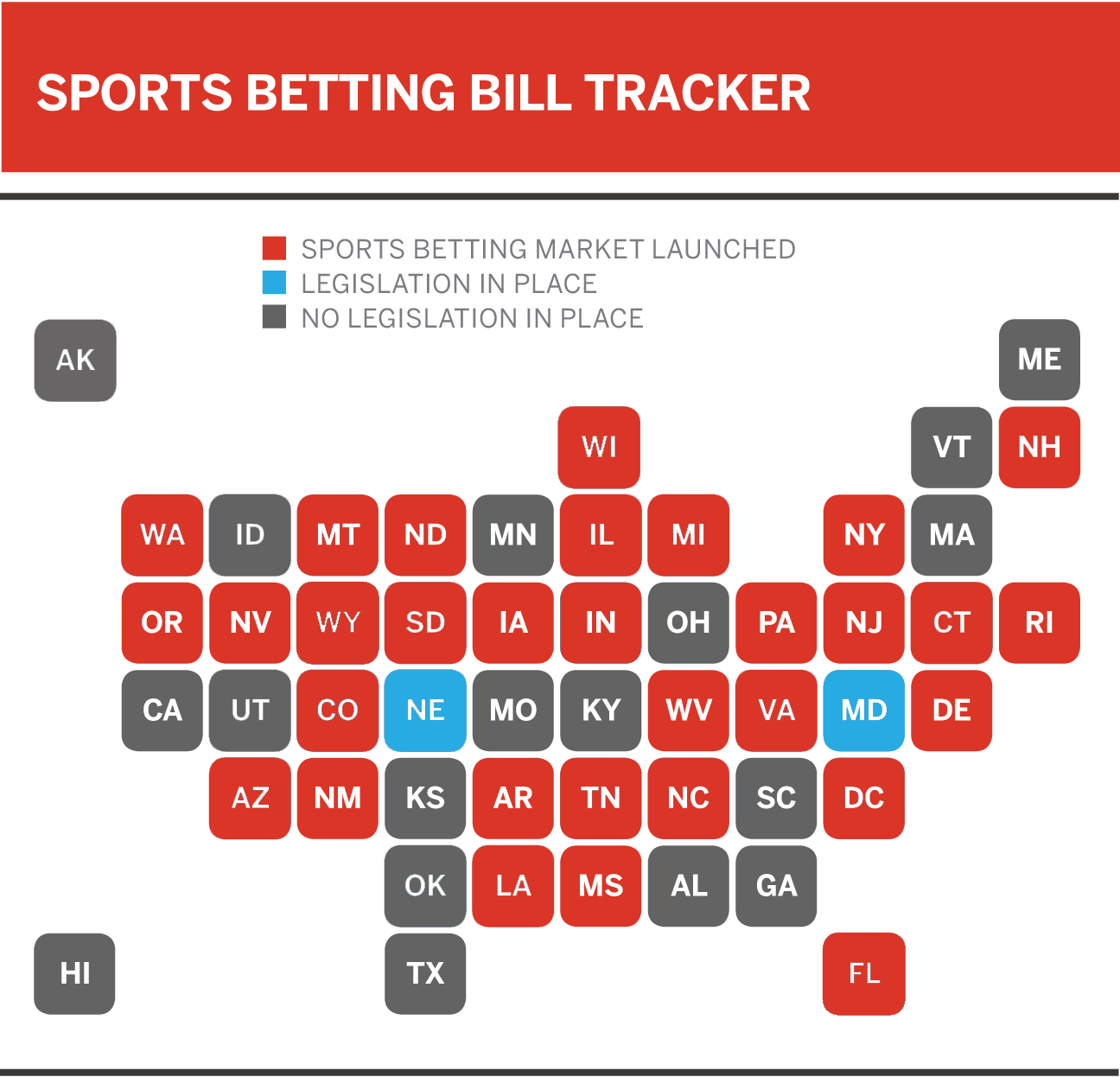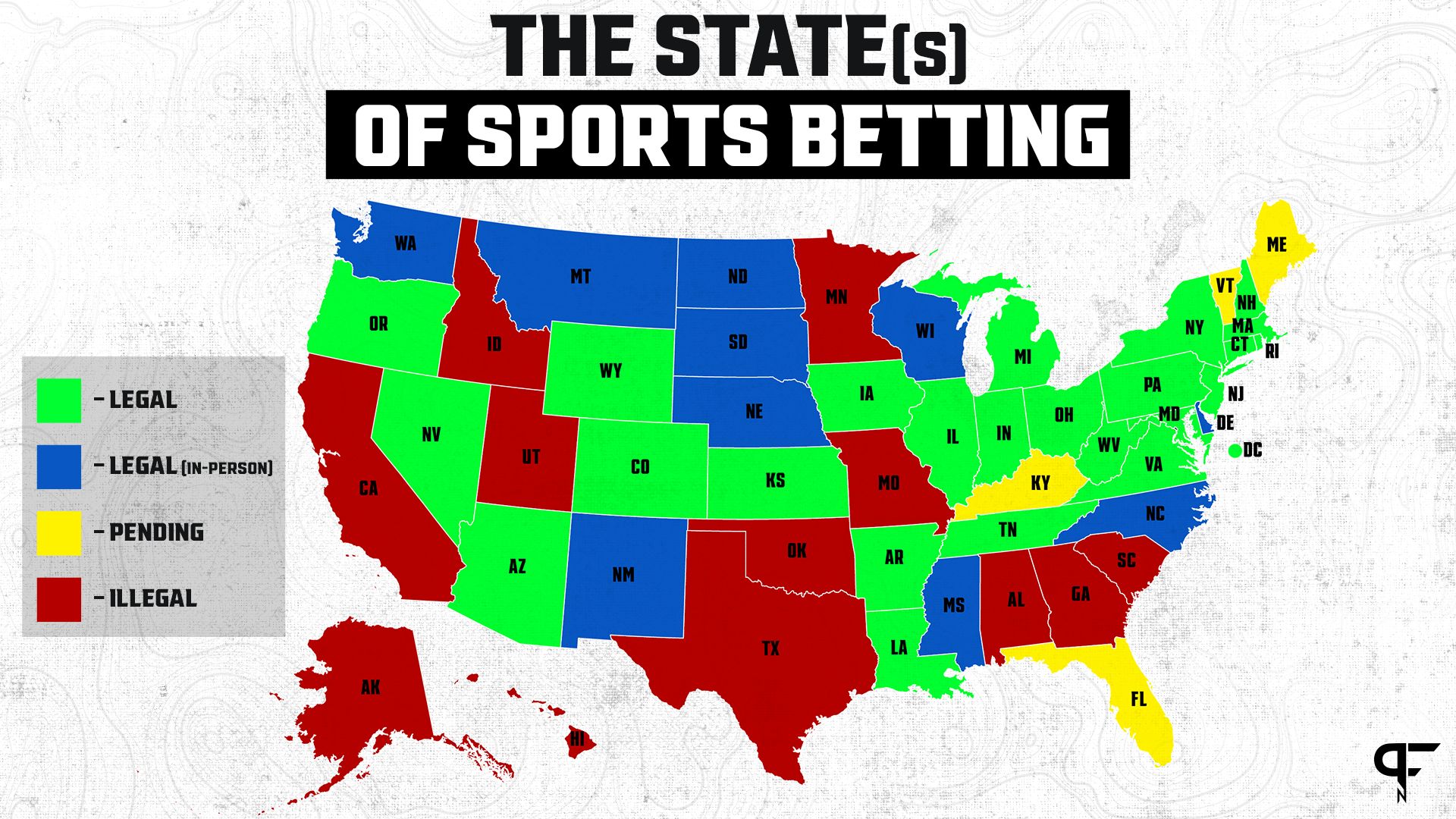Which Sports Betting Apps Are Legal In Texas

The Lone Star State's stance on sports betting remains a closely watched topic as residents eagerly anticipate potential changes to existing regulations. Currently, the landscape is quite clear: traditional, online sports betting apps as commonly found in other states are not legally operating within Texas borders.
This article aims to provide a comprehensive overview of the current legal status of sports betting apps in Texas, addressing the confusion and clarifying what options, if any, are available to residents seeking to engage in sports wagering.
While hopes have risen in recent legislative sessions, it is crucial for residents to understand the current situation.
The Current Legal Framework
As of October 26, 2023, traditional sports betting is illegal in Texas. This means major platforms like DraftKings, FanDuel, BetMGM, and Caesars Sportsbook do not hold licenses to operate within the state. Any attempts to access these services from within Texas may be blocked, or could potentially carry legal risks, even though prosecution is rare.
Efforts to legalize sports betting have faced significant hurdles in the Texas legislature. Past bills proposing constitutional amendments to allow sports wagering have failed to gain the necessary support, often due to concerns about social impact and the strong opposition from certain political and social groups.
The debate typically centers on whether the economic benefits of legalized sports betting, such as increased tax revenue, outweigh potential negative consequences, such as problem gambling.
Daily Fantasy Sports (DFS): A Gray Area
The legality of Daily Fantasy Sports (DFS) in Texas is somewhat ambiguous. While not explicitly legalized, DFS platforms like DraftKings and FanDuel operate in the state, arguing that their contests are games of skill rather than gambling.
This argument hinges on the idea that participants' success in DFS relies on their knowledge of sports statistics and player performance, distinguishing it from games of chance.
However, the lack of clear legal definition leaves DFS in a gray area, potentially subject to future legislative action or legal challenges.
Alternative Betting Options
With traditional sports betting outlawed, Texans seeking to wager on sports are primarily limited to alternative options. These may include traveling to neighboring states where sports betting is legal, such as Arkansas, Louisiana, and New Mexico.
Another option involves participating in social sports pools with friends or colleagues. These informal betting arrangements are generally tolerated, but operate outside of any regulatory framework.
It's important to note that engaging in illegal gambling activities can carry legal consequences, though enforcement is typically focused on large-scale operations rather than individual bettors.
Legislative Efforts and Future Prospects
The push to legalize sports betting in Texas is far from over. Proponents continue to advocate for the potential economic benefits and the need to regulate an activity that already occurs, albeit through unregulated channels.
Future legislative sessions are likely to see renewed efforts to pass bills that would allow Texans to legally wager on sports.
Key stakeholders, including professional sports teams, casino operators, and advocacy groups, are actively lobbying for changes to the current law.
The Potential Impact of Legalization
The legalization of sports betting in Texas could have a significant impact on the state's economy. A regulated market would generate tax revenue that could be used to fund education, infrastructure, or other public services.
It would also create jobs in the gaming industry and related sectors.
Furthermore, legalization would provide consumer protections and address concerns about problem gambling through responsible gaming initiatives.
Opposition to legalization often stems from concerns about the potential social costs of gambling, including addiction, crime, and financial hardship. Opponents argue that the benefits of legalization are outweighed by these potential harms.
They also raise ethical and moral objections to gambling, viewing it as a vice that should be discouraged.
The debate over sports betting in Texas reflects a broader cultural and political divide over the role of government in regulating personal behavior.
Navigating the Current Landscape
For Texans interested in sports betting, the current legal landscape presents a challenge. The absence of legal online sportsbooks necessitates exploring alternative options, such as traveling to neighboring states or participating in social betting pools.
It is crucial to be aware of the potential legal risks associated with any form of gambling, including the possibility of fines or other penalties. Additionally, it's important to be aware of the risks of problem gambling and to seek help if needed.
Resources are available for individuals struggling with gambling addiction, including support groups, counseling services, and self-exclusion programs.
The Texas Council on Problem Gambling is one such resource, offering information and support to individuals and families affected by gambling addiction.
Conclusion
While many eagerly anticipate the arrival of legalized sports betting in Texas, the current reality is that traditional online sports betting apps are not legal in the state. The future of sports wagering in the Lone Star State remains uncertain, dependent on future legislative action and ongoing debates over the potential benefits and risks of legalization.
Until the laws change, Texans must navigate the existing landscape carefully, remaining aware of the legal limitations and responsible gambling practices.
As the debate continues, residents should stay informed and engage in thoughtful discussions about the future of sports betting in their state.


















